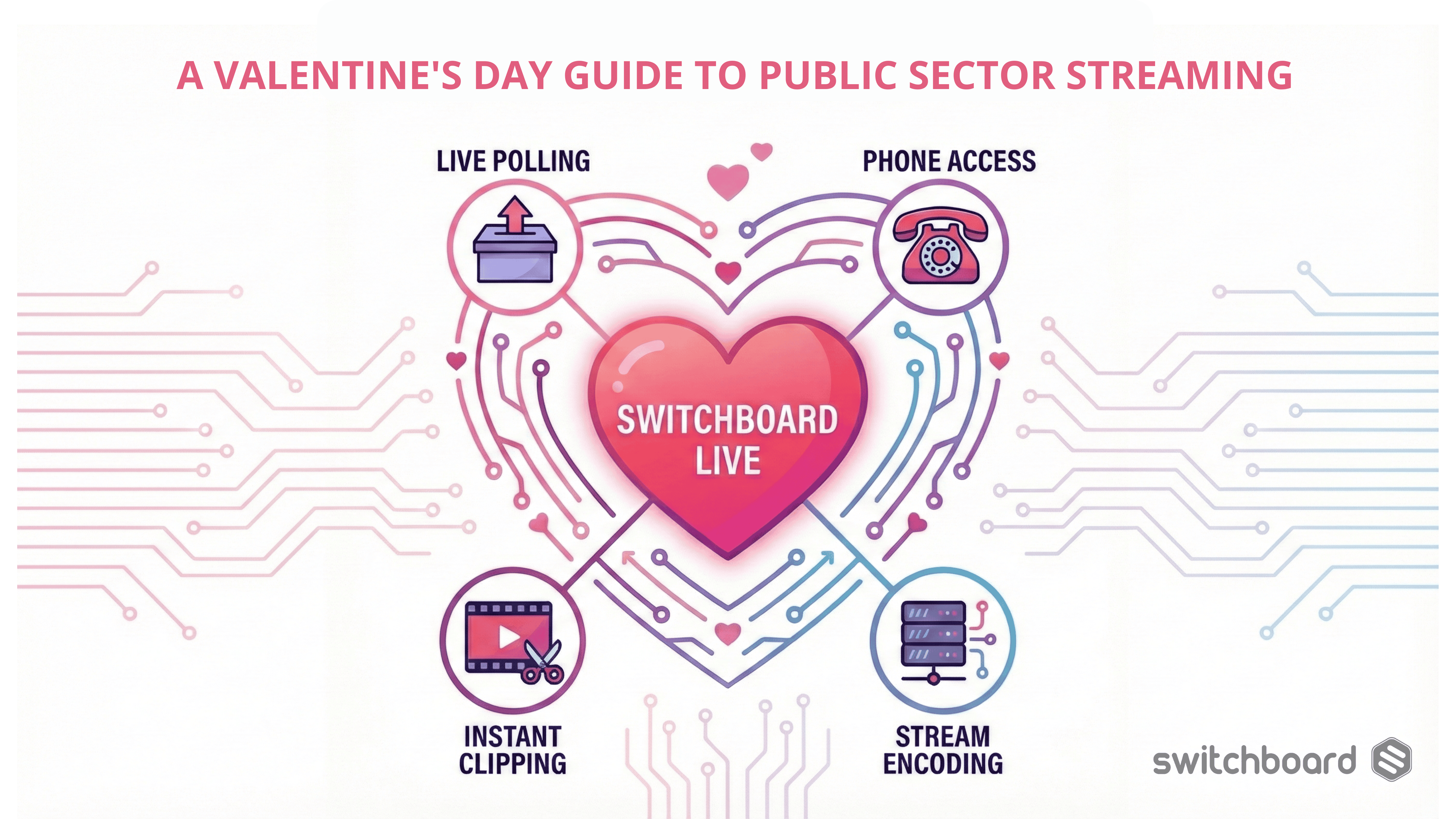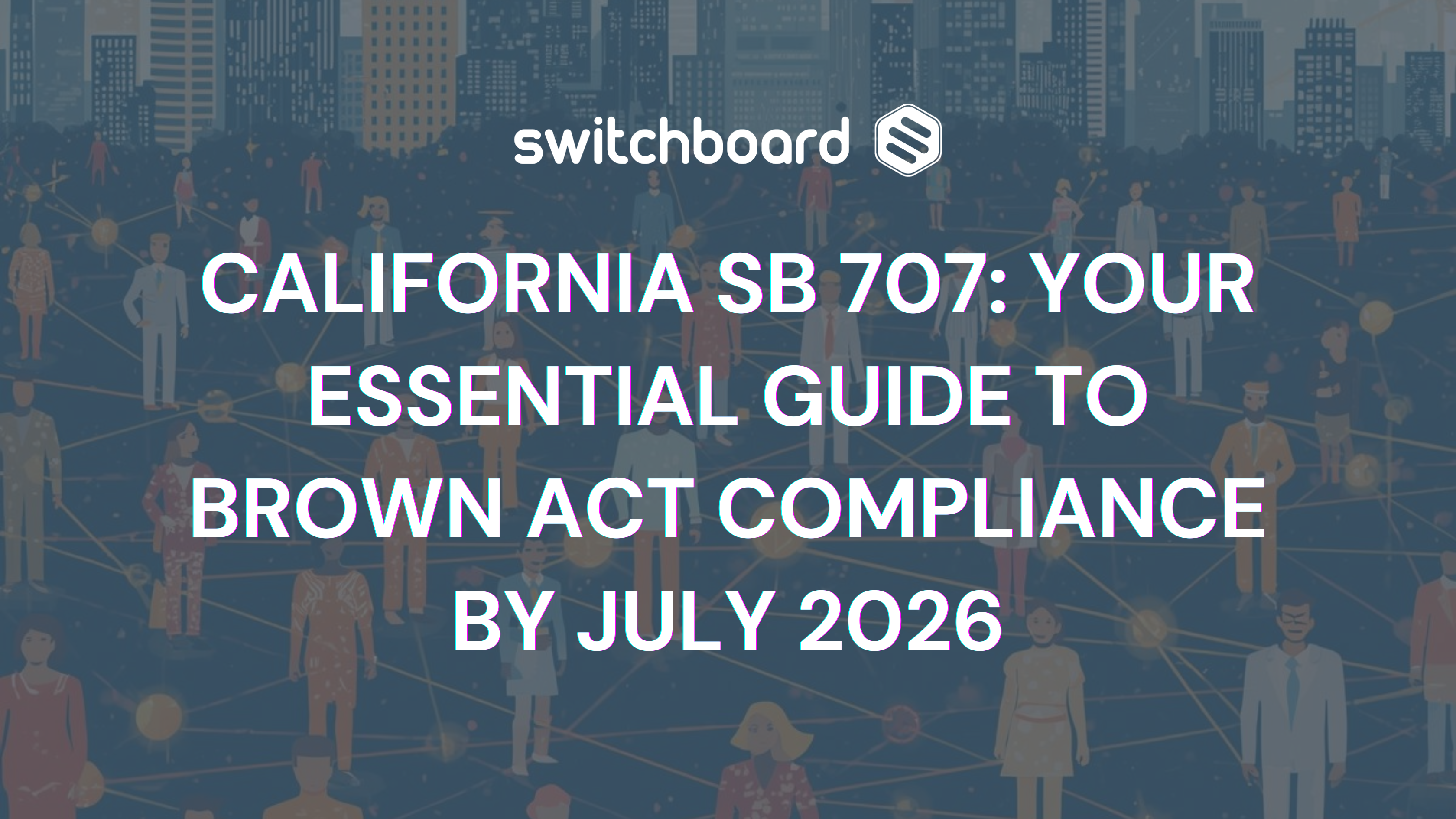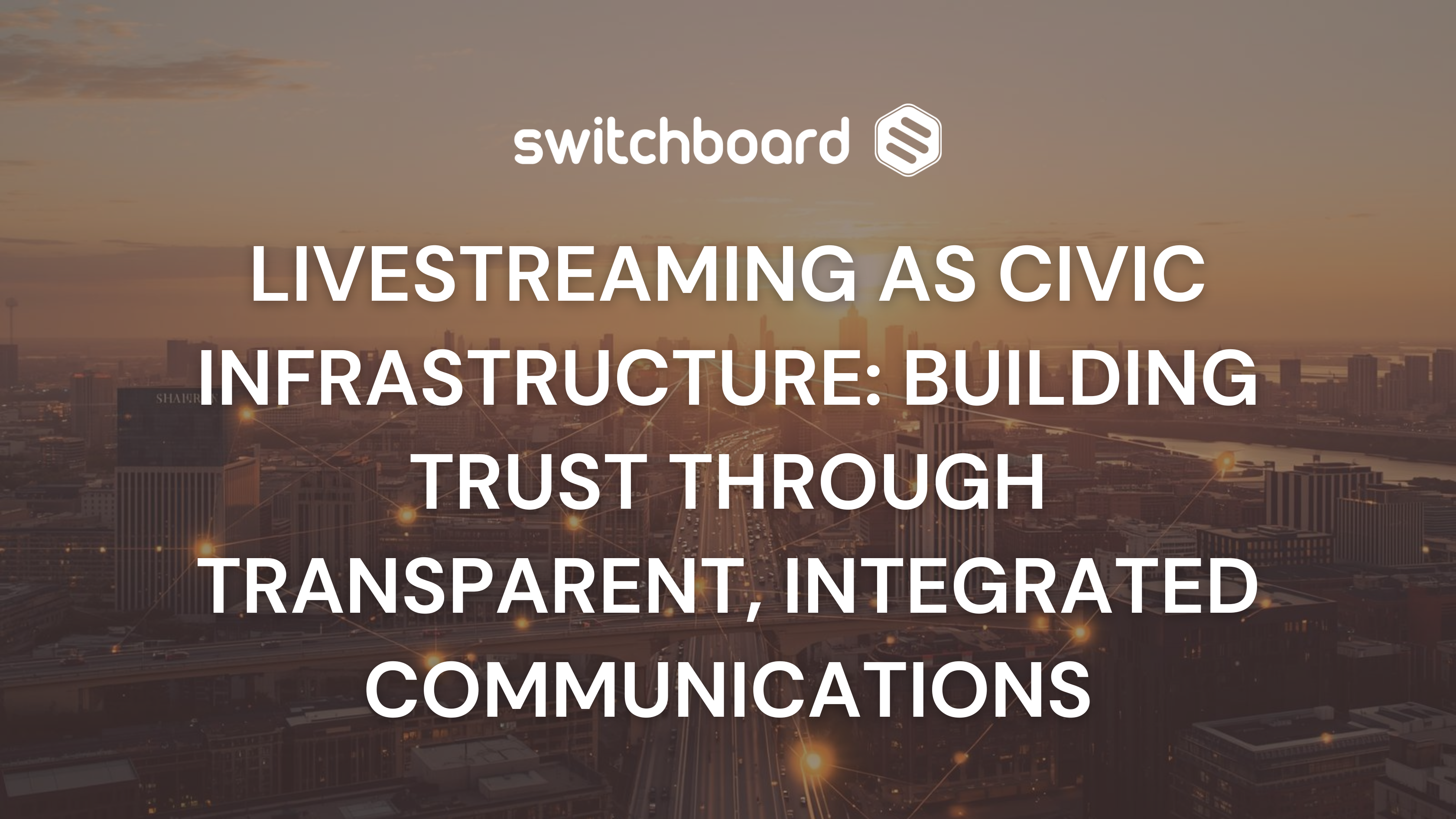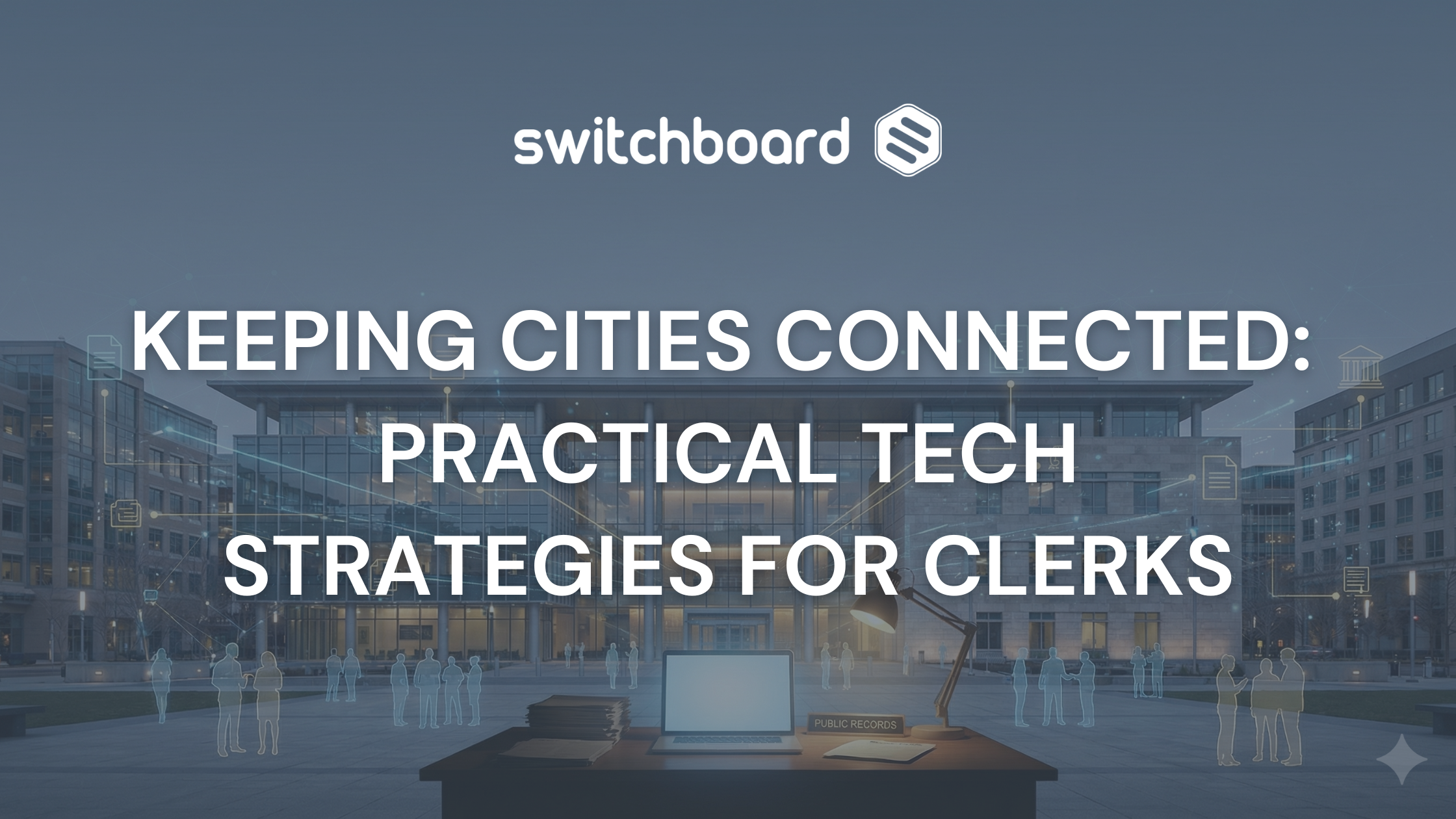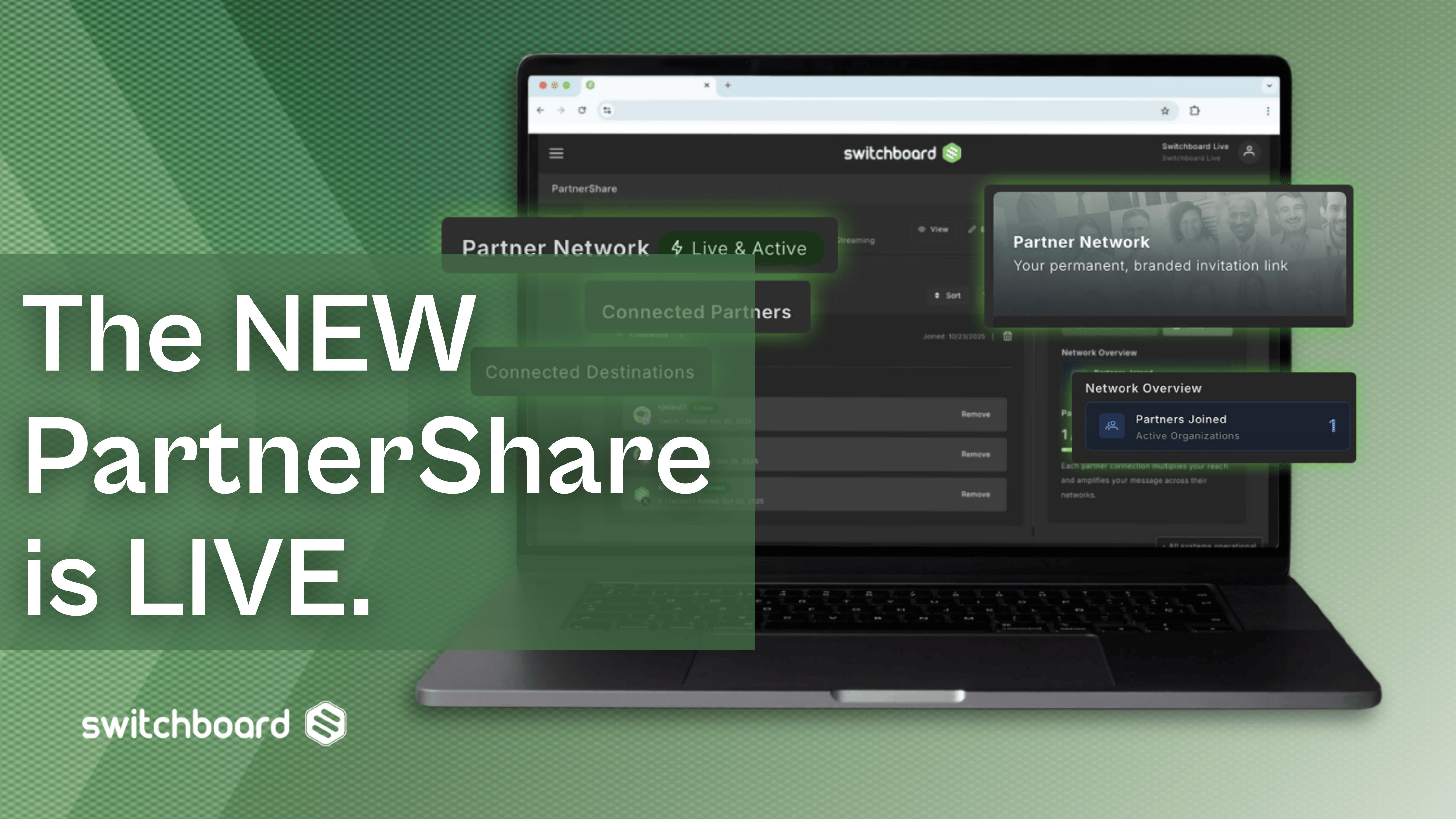For today’s Podcast, we discussed some exciting happenings in the livestreaming space! We also had the opportunity to speak with Nathan Parikh, a pastor at Hallmark Baptist Church, as well as a developer for us here at Switchboard. First up, we dive into the news...
Agora Launches a No Coding Required App Builder Marketplace
Agora.io is a real-time engagement platform for meaningful human connection. You can embed voice and video applications for different devices anywhere. Recently, they launched a new no-code builder marketplace which offers non-coder creatives the opportunity to build and launch the apps they want without having to worry about the fact that they aren’t developers.
This reminds us of other no-code-required app builders like Game Salad or AppMakr, even website drag and drop builders like Squarespace or Wix. These type of app-builders/website builders really simplify the process and allow people to produce what they want without having to code it. This also evens the playing field because previously, you either had to be a developer or had to hire one in order to bring your ideas to life!
Agora is all about pushing the boundaries here with what you can do with video chat and livestreaming. The thought process behind launching this marketplace is that there are a lot of generic apps that only go so far. In particular, this allows for more branded and use-case specific apps for customers. Plus, this doesn’t cost a ton of money either.
Live+, Mandolin’s Livestream Products and Enhancements for the Hybrid Events Future
We’ve talked about this a bit here previously, but it’s relevant which is why we keep seeing it pop up. Live+ was built because Mandolin surveyed 4,000 fans and what they found out is that people do want the chance to go to live events, but they also don’t want to give up the opportunity to see those live events virtually either. They want the freedom to choose, and they want a great experience when watching live events virtually.
So Live+ is a mobile-first platform and the way it works is they take the best parts of concerts...and make them better. You can replay. And, you also don’t have to worry about ticket sale limitations. In fact, Mandolin’s ticketing platform was built for massive scale...so if you want to see the show, you can see the show. They’re also allowing mobile merchandise purchases/auctions, mobile fan participation, VIP experiences, and offer digital festival enhancements.
For the artists and venues, this adds additional revenue streams as well as data for them to get to know their fans a bit better. From a marketing perspective, this could open up a whole other world of possibilities for artists and venues. But, we’ll save that for another day. Long story short, this sounds pretty darn cool if you ask us!
Livestreaming and Houses of Worship - an Interview with Hallmark Baptist Church's Communications Pastor, Nathan Parikh
Houses of Worship are a perfect example of how one segment used livestreaming throughout the pandemic as a way to connect with audiences during a time when it wasn’t safe to do so in-person. Joining us this week was Nathan Parikh, a Communications Pastor at Hallmark Baptist Church out of Fort Worth, Texas. He also happens to be a developer here for us at Switchboard. He tells us his church's story and how they use Switchboard to livestream to their audience.
Nathan’s Background and Why Did They Start Livestreaming?
Nathan’s role as Communications Pastor at his Church is such that he’s always trying to help the community come together, to reach people where they are first, as opposed to forcing them to have to be there in-person to connect. Livestreaming became an obvious way to help people who have never been to their services before, who wanted to watch. It also allows their members who are sick or can't attend for some other reason to watch as well. They started livestreaming a few years ago, even before the pandemic hit, but last year it was really the only way they could continue events.
Switchboard became especially valuable to them because of the ability to connect to multiple destinations at once. They stream to both Facebook and YouTube. Originally they only streamed to Facebook, but realized quickly that YouTube would enable viewers to watch from their TV screens with Roku, etc.
A Positive Response to the Livestreams
Before 2020, they maybe had 20 viewers every Sunday. The numbers weren't huge, but they felt that was okay at the time. During the pandemic, however, the whole congregation joined in and most were just grateful that they already had this in place to make use of so they could continue participating.
Even now, as things are normalizing, the attendance online is still pretty impressive, probably averaging about 80-100 people watching per stream. Some of this is likely due to the fact that not all people are comfortable yet attending in-person. But, it could also be that because of last year, livestreaming became the mainstream, even for older folks.
One of their initial concerns, by offering livestreaming, was that people would use it as an excuse to attend online instead of in-person. In reality, what they learned is that instead of it giving people a way out, it really ended up giving them an extra way in. And, if one were to venture a guess, based on how this new hybrid model seems to be shaping up, this will only continue...for Hallmark Baptist Church and the rest of us!



